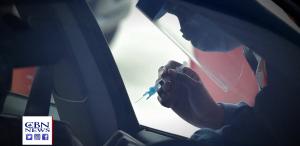BECOMING A SMART PATIENT
Dr. Roizen says years ago physicians were seen as the supreme authorities. Patients believed everything their doctor told them. They diligently followed "doctors orders" and never questioned why.
Today the emerging role of the patient has changed. Patients are now becoming more involved in keeping themselves healthy, strong, and in command of their lives. Dr. Roizen refers to these patients as "Smart Patients."
Patients are using the Internet to research medical terms and alternative medications. Instead of asking the doctor "What should I do?" now patients are starting off with "Do you think I should..." Smart patients ask intelligent questions and have the instincts to politely challenge things they don't understand.
Everyone needs to be a smart patient. In fact, in the worst cases, your life may even depend on it. Most patients don’t do a great job of communicating with their doctors because patients often give too little pertinent information for their doctor to go on. Or, they may give too many distracting or off-topic details.
Some ways to show your doctor you are a smart patient is bring a completed health profile to your first office visit. To create a health profile you can go online and download the necessary forms at www.jcrinc.com and www.realage.com. Next, bring the completed forms and a baggie of all your medications, vitamins, herbs, or whatever else you might be taking to your appointment. Be sure to store copies of your health records in a fireproof safe and update them yearly or whenever a piece of key info changes.
FINDING THE RIGHT DOCTOR
One of the most important decisions you will ever make is choosing your doctor. Dr. Roizen says to consider your doctor as the head coach of your football team, the floor manager of your Hollywood restaurant, the captain of your ocean liner. Choose wisely, and you could rest easy for many years to come. Your primary physician will probably be the one you see the most often, and he or she should know your complete medical history. Make sure you feel comfortable with this doctor since you will most likely have the closest relationship with your primary care physician. When searching for Dr. Right, follow these steps:
1) Get Referrals Online - The Internet is the fastest, easiest modern medium for finding the doctor that is right for you. Finding a particular doctor listed on two or more websites is a good sign. Some websites to check out include: American Medical Association, American Board of Medical Specialties, American College of Physicians, American College of Surgeons, Diabetes Physician Recognition Program, and Family Doctor.
2) Call a Medical Society for Referrals – Most of these subgroups will refer you to physicians on their list in your area. To find out if the doctor you’re considering is board certified, call the American Board of Medical Specialties. Since becoming certified is optional, not all doctors choose to take the exam or they may be board eligible, which means they’ve not yet taken the exam or they’ve taken the exam and failed.
3) Grill the ER Nurse at the Best Local Hospital – These nurses work directly with primary care doctors. They know firsthand the doctors that are sharp, well respected, and which ones guess correctly 80 percent of the time. They also know which doctors are indecisive, which ones get second-guessed, and which ones are slow in answering their pages.
PRESCRIPTION DRUGS
It's estimated that every year about 40,000 people die and 1.3 million are seriously hurt from medication mishaps, which include taking the wrong dose, getting the wrong prescription, mixing the wrong pills, or a combination of all three. Only about half of all prescriptions are filled or taken correctly. Here are a few rules to keep in mind when it comes to prescription drugs.
Make sure your doctor and your pharmacist know about every drug, vitamin, nutritional supplement, and herbal remedy you’re taking. Since some of these could interact dangerously with medications.
Get it in writing. Don’t trust your memory. Ask your doctor to write down any instructions relevant to taking your medication and have your doctor write down the purpose of the medication as well as the generic and brand names of the prescription.
Make sure you get the prescription filled. About two in six prescriptions never get filled because people decide they don’t need the medicine.
Keep your medications in their original bottles or packages to avoid getting confused.
Don’t take someone else’s medication.
While at the pharmacy, read the label on your medication and make sure you have the right drug and the right dosage. Make sure the pills look like the pills you’ve taken before.
Toss outdated medications. Old pills can lose their effectiveness, making them worthless.
Don’t check your pills into your baggage at the airport.
Take your medication list to the hospital. Make sure doctors and nurses have it before administering any new medications.
Don’t store your drugs in the bathroom medicine cabinet. The moist environment can cause your pills to disintegrate or become useless.
Don’t ask for antibiotics unless you and your doctor both agree they are necessary. If you take an antibiotic you don’t need, you’ll be wiping out the good bacteria in your system.
Take the time to develop a personal relationship with your pharmacist. He or she has a wealth of knowledge when it comes to prescription drugs as well as over-the-counter drugs. There are thousands of over-the-counter drugs in your local pharmacy that deserve the same cautions as prescription drugs. Before purchasing an over-the-counter drug, stop by and talk with your pharmacist. They can help you make a wise and safe purchase.
HABITS ARE IMPORTANT
Dr. Roizen says habits are important. A smart patient should know that their habits will make a great difference in their health. Small changes can make a big difference in your risk of getting cancer.
All genes do is make proteins or control other genes, and as far as your health and quality of life, you get a “do-over” if you want it.
Not all our actions affect our genes and that’s great news because we get to turn them on and off. For example, saturated fat in butter or a crossaint apparently turns on genes that make certain cancers – lung, breast, colon, etc – also increasing the inflammation in the artery walls making them stiffer. Amazingly, if you develop prostate, breast, or colon cancer, it turns out that if you walk 30 minutes a day, you decrease your risk of recurrence of cancer by 50 percent. This happens because walking turns on a gene. Walking 10 or more minutes in a row turns on a gene that makes a protein that slows the growth of these tumors.
Healthy meal choices make a big difference – you may consider substituting bread and butter with raws veggies and skip the dessert. Vitamin D is also necessary for a spell-checking gene in each cell. You also need it for bone strength. To cause your bones to get stronger one needs to “exercise to failure,” which means you do the proper exercise until you can’t do it anymore.
Key bones to build are bones in your back and hips, and you can do the exercise of “the invisible chair” at home. Do it until you can’t anymore, maybe every other day. So walking, proper exercise, avoiding saturated fat, and getting vitamin D can turn on genes and make it more likely that you can avoid cancer and build bones so you can keep walking.





